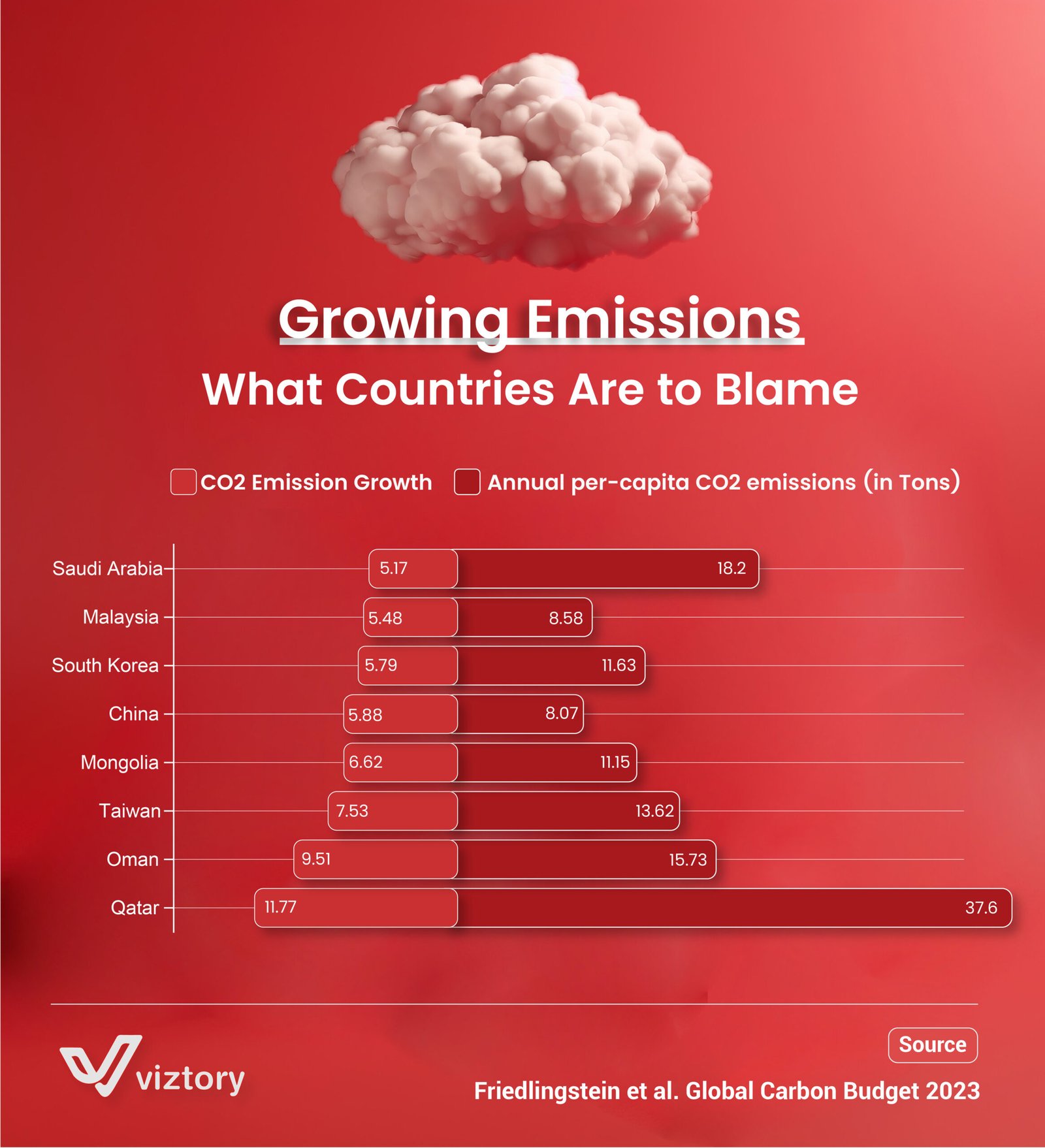Rising Carbon Emissions and Their Impact on Public Health
-
Sep, Tue, 2024
Rising Carbon Emissions and Their Impact on Public Health
Introduction:
The image highlights countries with significant increases in carbon dioxide (CO2) emissions, along with per capita emissions. Carbon emissions are one of the main contributors to climate change, which directly and indirectly affects human health. In this article, we will discuss how growing emissions impact public health and the relationship between emissions and healthcare.
The Link Between Carbon Emissions and Public Health:
As carbon emissions increase, the surrounding environment deteriorates. High levels of CO2 emissions contribute to the buildup of greenhouse gases in the atmosphere, leading to global warming and altered weather patterns. These climate changes have a significant impact on public health, including the spread of infectious diseases like malaria and dengue fever, as well as the rise in respiratory illnesses caused by air pollution.
Impact of Carbon Emissions on Respiratory Diseases:
Countries with high per capita carbon emissions, such as Qatar (37.6 tons) and Saudi Arabia (18.2 tons), face increasing health risks from air pollution. Inhaling polluted air contributes to higher incidences of asthma, chronic lung diseases, and pneumonia. In these nations, there is an urgent need to strengthen healthcare systems to address this escalating health challenge.
Environmental Damage and Its Effect on Mental Health:
Climate changes caused by carbon emissions also have psychological effects. Frequent floods, hurricanes, and droughts can lead to anxiety, depression, and psychological distress. Countries like Malaysia and Taiwan, which show significant carbon emission growth (5.48% and 7.53%, respectively), experience environmental changes that affect the mental health of their populations.
Climate Change and Disease Spread:
Global warming, driven by carbon emissions, leads to changes in the spread of infectious diseases. Countries like China and South Korea, which have substantial per capita emissions, are seeing the rapid spread of certain diseases due to rising temperatures and changing climatic conditions. Healthcare systems in these countries must adapt to these challenges by improving prevention and treatment programs.
The Need for an Integrated Healthcare Response:
The data presented in the image shows the rapid growth of carbon emissions in several countries like Oman and Mongolia. The situation in these nations requires significant improvements in healthcare systems to cope with the health effects of climate change. This includes enhancing preventive health services, improving access to healthcare in affected areas, and increasing investment in healthcare infrastructure to manage environmental crises.
Conclusion:
Growing carbon emissions have a profound impact on public health, increasing respiratory illnesses, affecting mental health, and facilitating the spread of infectious diseases. Countries must address this environmental crisis by improving healthcare systems and taking serious measures to reduce emissions. Integrated healthcare solutions are essential to protect the health of future generations in the face of ongoing climate changes.

